Ballymurphy inquest: Ex-Army doctor says he did not write documents
- Published
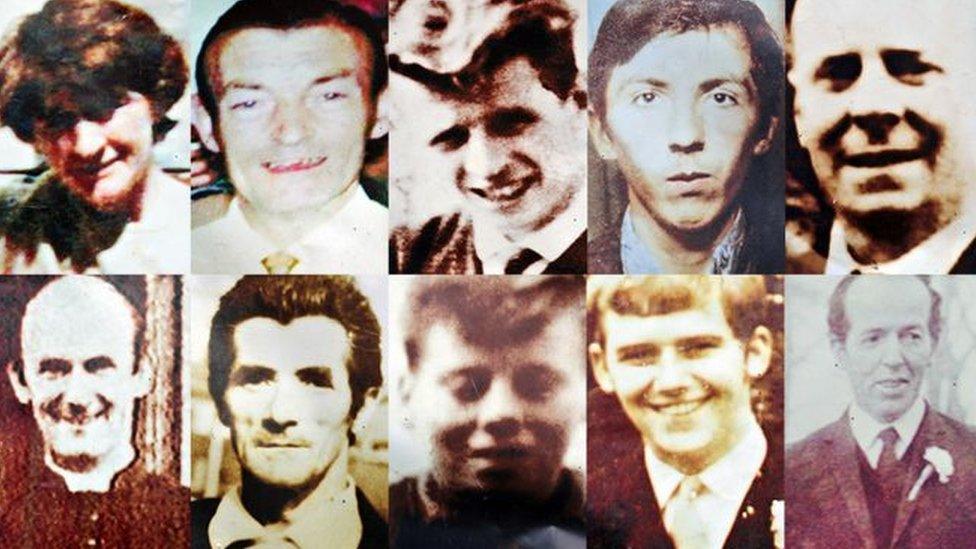
An inquest is examining the deaths of 10 people killed in shootings at Ballymurphy in August 1971
A former Army doctor has told the Ballymurphy Inquest he believes official documents in his name had been written by someone else, and contained what he called "glaring mistakes".
Soldier M382 said he was posted to Northern Ireland in August 1971 as a captain in the Royal Army Medical Corps.
However he said he had very little medical experience.
The events of the time were etched on his memory "indelibly", he said.
M382 was read statements from 1972 with his name on them, but which were undated and unsigned.
He was adamant that he did not make these statements and pointed out several mistakes he insisted he simply would not have written.
The statements involved two men fatally shot on 11 August 1971 on the Upper Whiterock Road in west Belfast.
M382 concluded that somebody else wrote the statements, and that he had no memory of ever examining or treating John Laverty or Joseph Corr, or pronouncing the death of John Laverty.
M382 said he simply would not have been permitted to operate on the men, adding that he wanted the relatives to know that he did not operate on Mr Corr.
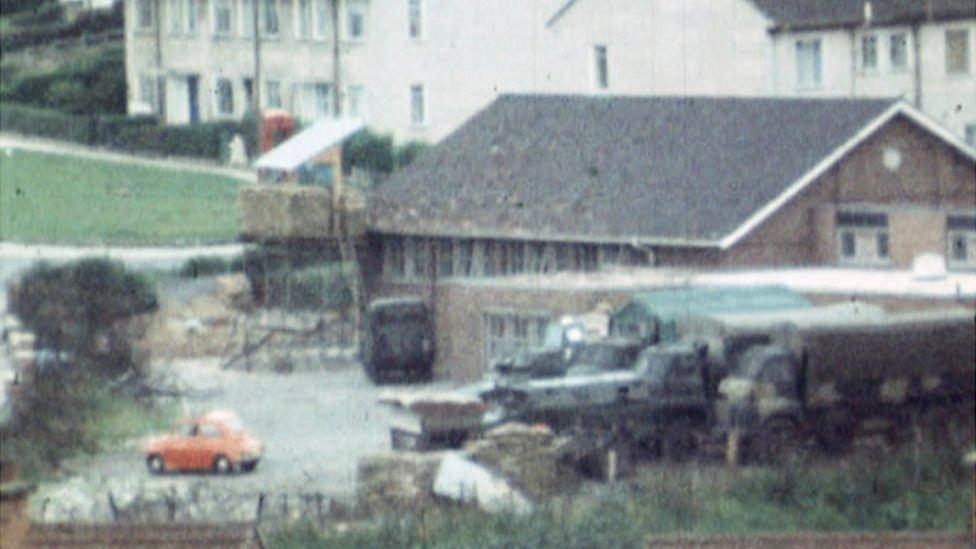
Soldiers from the Parachute Regiment were based at Henry Taggart Army base
"I was an inexperienced surgeon, I could not have done it," he told the inquest.
"If I had tried to do it, the thought that I would have no memory of it is impossible," he said.
Although Mr Laverty died on 11 August, Mr Corr died some days later having been airlifted to the Royal Victoria Hospital.
M382 told the coroner, Mrs Justice Keegan, he could not say who had written the statements but repeated that it simply could not have been him.
Later the court was read the statement of Mrs Eileen Corr who remembered meeting M382, using his real name, when she visited her husband in hospital.
M382 could not remember meeting Mrs Corr but said he could have spoken to her without ever having operated on her husband.
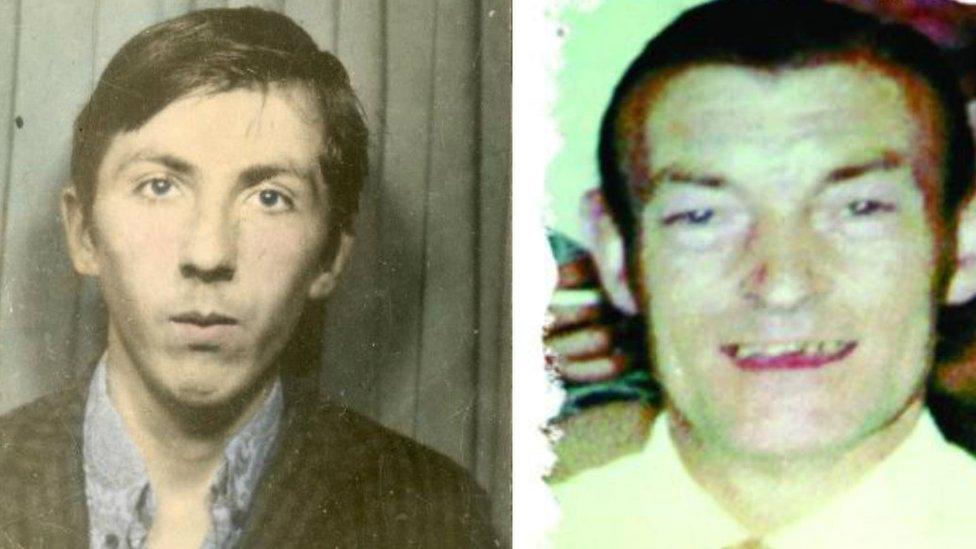
John Laverty and Joseph Corr were shot dead on the Upper Whiterock Road in west Belfast
M382 also offered his condolences to the families of the victims of the Ballymurphy shootings in 1971.
He briefly addressed several relatives of the victims:
"I am very sorry for their bereavement and wish to offer and express my sincere condolences," he added.
"I identify that my primary duty of care is to the relatives."
'Absurdity'
M382 told the court he had joined the Army to help fund his medical degree and had spent very little time actually working with the military.
He explained that he was sent to Belfast in August 1971 as a junior with only two weeks surgical experience.
He was to cover the leave of a Col Declan O'Brien, a consultant surgeon working at Musgrave Park Hospital military wing in Belfast.
M382 described his posting to replace such an experienced man as an "absurdity" and he said he could not imagine what the Ministry of Defence had been thinking.
Col O'Brien has since passed away.
'Florence Nightingale'
M382 described the Military Wing at Musgrave Park as a "Florence Nightingale set-up" saying is was short of senior staff.
He testified that he had not given evidence at the original inquest in 1972 and had never been asked to make a statement before the current inquest began its work.

John McKerr died more than a week after he was shot and injured
Later, the court heard from a new witness who has come forward since the inquest began.
John McKerr, a former British soldier, was shot and seriously injured outside Corpus Christi Church on Westrock Drive, also on 11 August.
The 49-year-old died some days later, and the inquest looked at his death in December 2018.
Sean McKearney described how as an 11-year-old boy he was brought by his family to attend the funeral of a neighbour.
Mr McKearney said while waiting outside the church he heard two or three shots, and watched Mr McKerr falling.
False hand
He believed he had been shot by Army paratroopers with whom his family had had a confrontation with earlier as they had tried to drive past an Army vehicle to get to the church..
He remembered staring at Mr McKerr's false hand, and said he heard one soldier say after the shooting that he had seen him with a weapon.
No weapon was ever found.
Mr McKearney said the soldiers would have been able to see if anyone had lifted a weapon and taken it away.
He also said he remembered his family being angry when a radio report said the funeral had been for an IRA gunman, when in fact it had been for a young local man who had drowned.
- Published11 June 2019

- Published11 May 2021
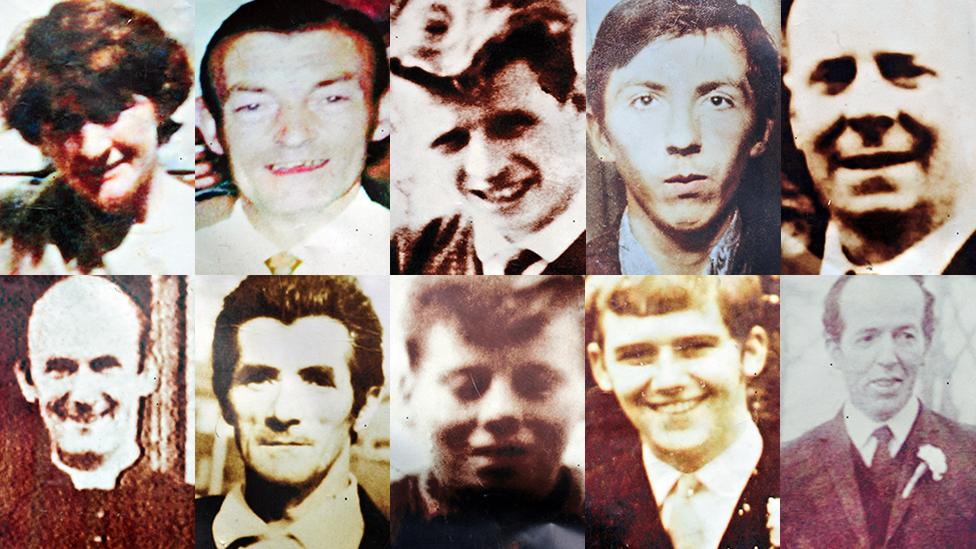
- Published30 May 2019
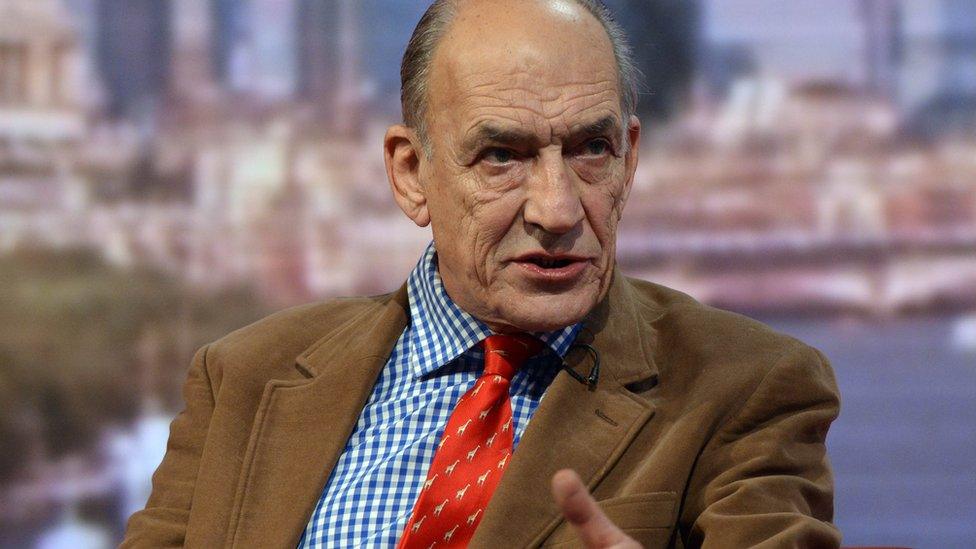
- Published20 May 2019
